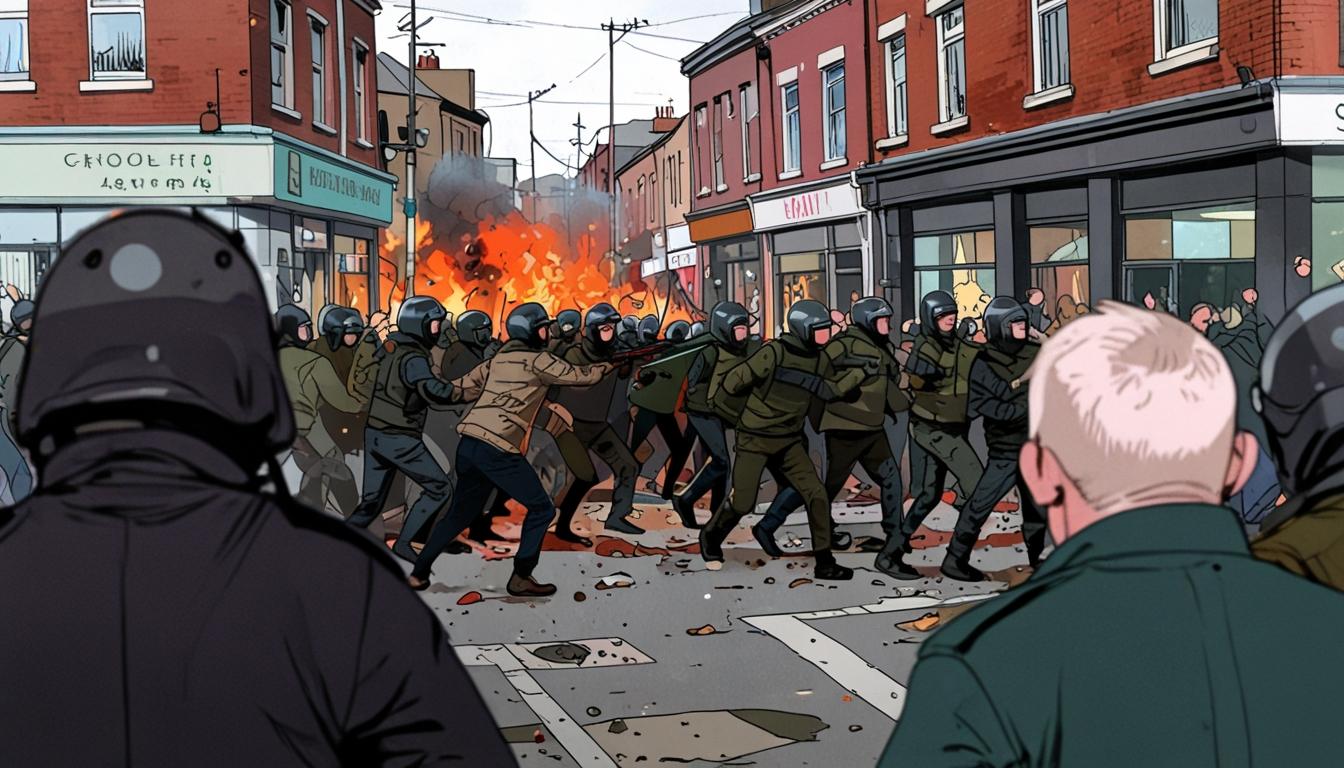Serious rioting erupted in the Donegall Road/Sandy Row area of south Belfast following a large demonstration in the city centre against the placement of immigrants into working-class communities. The unrest highlights ongoing tensions surrounding immigration in Northern Ireland, where the emergence of loyalist paramilitary elements has been linked to increasing acts of racial violence and intimidation.
A report released by the Committee on the Administration of Justice (CAJ) outlines a significant involvement of loyalist paramilitary groups in orchestrating such violence against migrants. This finding marks a notable distinction when compared to similar incidents elsewhere in the UK and Ireland, where such direct involvement is largely absent. The report conveys a clear message: "There is a particular problem of the involvement of elements of loyalist paramilitarism in racist violence and intimidation," indicating a troubling convergence of organised crime and racist agendas.
The CAJ’s findings challenge the narrative that there is widespread cross-community support among republicans and unionists for anti-immigration protests, labelling this view as “inaccurate” and based on external projections. According to the report, the portrayal of a unified anti-immigration front is mostly a fabrication designed to fit an international narrative. It provides a historical context, suggesting that the riots seen in August 2024 were not isolated incidents but rather part of a continuous pattern of racist violence in Northern Ireland.
While the August riots in English cities were termed the worst incidents of racial violence in recent British history, the events in Northern Ireland are characterized as an escalation of existent racist hostilities, underpinned by a distinct paramilitary influence. The report elaborates that this presents a worrying trend as it fuses racism with the historical context of paramilitary activity in the region.
Ivanka Antova, a spokesperson for United Against Racism, emphasised the importance of the report in countering misinformation propagated by far-right entities. "Today’s report dismantles the myth of hatred uniting people north and south," she noted in a statement to The Irish News. Antova articulated that genuine grassroots solidarity exists within an all-island anti-racism movement, which seeks to promote equality, housing, and public services for everyone.
The report further highlights the detrimental role of social media in disseminating misinformation. Antova pointed out that such platforms have played a significant part in galvanising crowds and inflating tensions, leading to the unrest witnessed in August.
When discussing the role of loyalist paramilitaries in targeting immigrant communities, Antova called for more extensive efforts to address these issues. “All relevant institutions in Northern Ireland must be prepared to confront this issue and stand up for migrant communities against what can only be described as an unprecedented level of aggression,” she stated. She demanded greater transparency regarding the links between paramilitary organisations and the far-right movement, emphasising the need to expose the extremist leadership behind these actions.
The events in south Belfast and the accompanying report serve as a stark reminder of the complexities surrounding immigration and societal tensions in Northern Ireland, as local institutions are urged to take a stronger stance against the rise of racial violence and intimidation.
Source: Noah Wire Services
